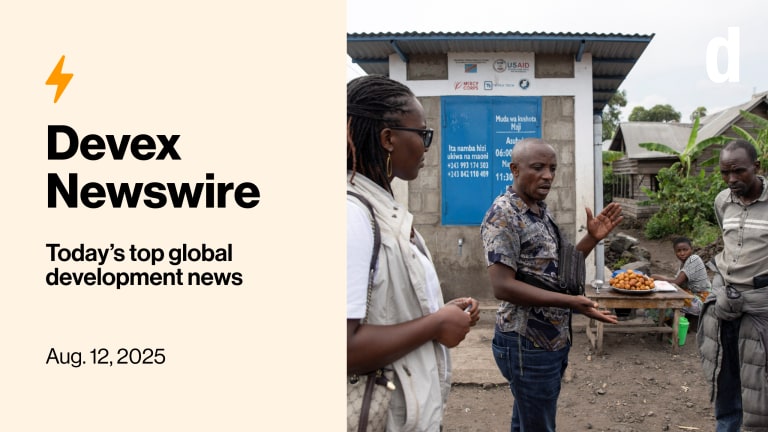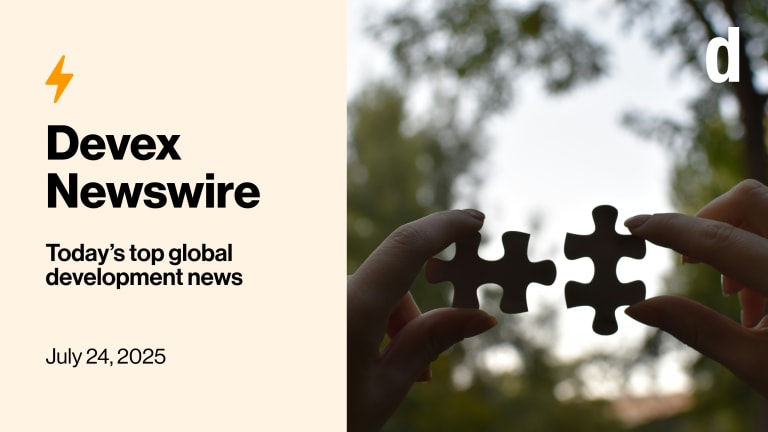The COVID-19 pandemic tested democratic norms everywhere from the United States to Australia, but what about countries where civil liberties were not that strong to begin with? Today we bring you a case study from North Africa on whether the public health crisis also offered autocracies a chance to gain legitimacy.
Also in today’s edition: localization by the numbers, the world according to Emmanuel Macron, and Europe’s moral failure on migration.
+ Join us tomorrow at 9 a.m. ET (3 p.m. CET) for a Devex Careers event to get expert insights on how networking and engagement can help you uncover hidden consulting opportunities. Can’t attend live? Register anyway, and we’ll send you the event recording.
Printing articles to share with others is a breach of our terms and conditions and copyright policy. Please use the sharing options on the left side of the article. Devex Pro members may share up to 10 articles per month using the Pro share tool ( ).








